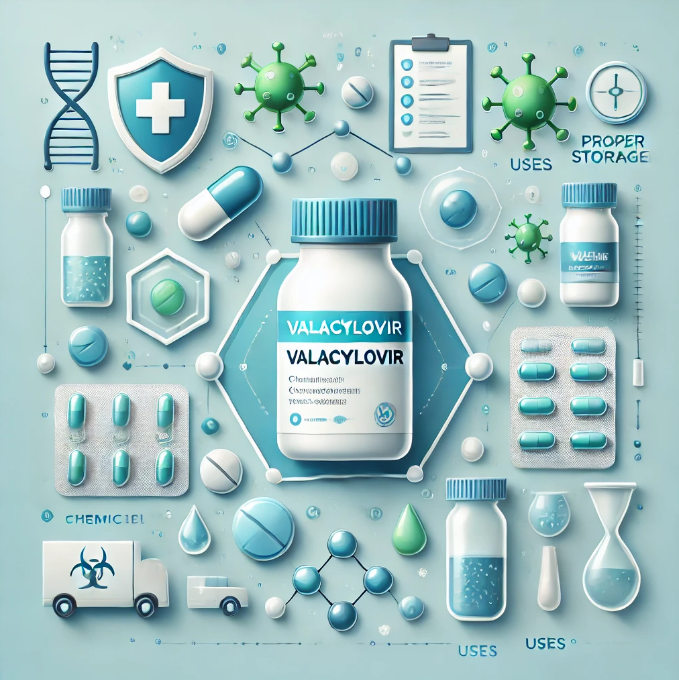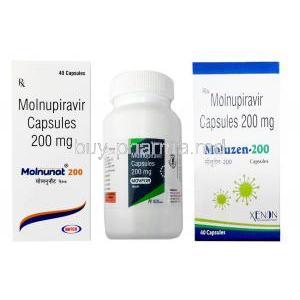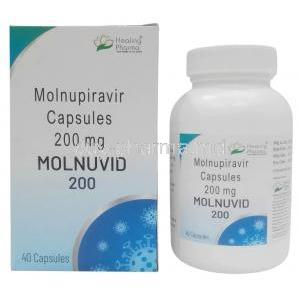Valcivir, Valaciclovir Tablet
- Introduction to Valaciclovir
- Composition of Valaciclovir Tablets
- How Valaciclovir Works
- Uses of Valaciclovir
- Off-Label Uses of Valaciclovir
- Dosage and Administration
- Standard Dosing Guidelines for Different Conditions
- Valaciclovir Dosage for Herpes
- Valaciclovir Dosage for Cold Sores
- Valaciclovir Dosage for Shingles
- Valaciclovir Pregnancy Dosage
- Valaciclovir Pediatric Dose
- Adjustments for Specific Populations (e.g., Renal Impairment)
- Valaciclovir Daily Dosage
- Valaciclovir Max Dose
- Instructions for Optimal Consumption (with/without food, etc.)
- Administration Considerations in Special Populations
- Common Side Effects of Valaciclovir
- Serious Side Effects and Adverse Reactions
- Drug Interactions with Valaciclovir
- Precautions and Warnings
- Handling and Storage of Valaciclovir
- Overdosage of Valaciclovir
- Careful Administration and Monitoring
Introduction to Valaciclovir
Overview of Valaciclovir (Valcivir)
Valaciclovir is mainly used for its effectiveness against HSV types 1 and 2 and the varicella-zoster virus responsible for chickenpox and shingles outbreaks when taken orally. It is absorbed more effectively than acyclovir and becomes active after metabolization, enhancing its antiviral properties by better disrupting viral replication by blocking the viral DNA polymerase enzyme.
- Valaciclovir's pharmacodynamics focus on hindering the replication of the virus itself, which protects against flare-ups and the spread of HSV infections.
- Valaciclovir is known for its improved absorption and lasting presence in the bloodstream, essential for effectively controlling outbreaks.
Brief History and Development of the Medication
Valaciclovir was developed to enhance the effectiveness and delivery of acyclovir as part of an initiative to improve infection treatment. The FDA approved it in 1995 as a step forward in treating such disorders. The innovation in Valaciclovir focused on improving acyclovir's pharmacokinetic profile.
This led to less frequent dosages and higher levels in the bloodstream. Research and trials consistently show Valaciclovirs have better absorption rates than acyclovir, making it a preferred choice for medical use when rapid viral suppression is needed.
Valaciclovir plays a role in treatment, being essential for providing patients with substantial relief from the physical manifestations of herpes viruses and lowering the likelihood of transmission, thus enhancing both personal well-being and the overall public health response to these infections.
- Effectiveness: The medication notably reduces the length and intensity of acute herpes episodes. It plays a key role in preventing future outbreaks.
- Valaciclovir is often recommended for people, with weakened systems to protect them from complications that can result from these viral infections.
Composition of Valaciclovir Tablets
Valaciclovir tablets are crafted to treat infections caused mainly by herpes viruses. They are focused on enhancing effectiveness and making the treatment regimen easier for patients to follow.
Active Ingredients and Their Functions
Valaciclovir tablets contain valaciclovir hydrochloride as the component—a form of acyclovir that becomes active after ingestion and effectively blocks viral DNA replication to minimize the intensity and duration of viral flare-ups. Upon conversion from valaciclovir to acyclovir in the body system, acyclovir acts explicitly on the DNA polymerase enzyme, inhibiting the replication of DNA while not harming the host cells.
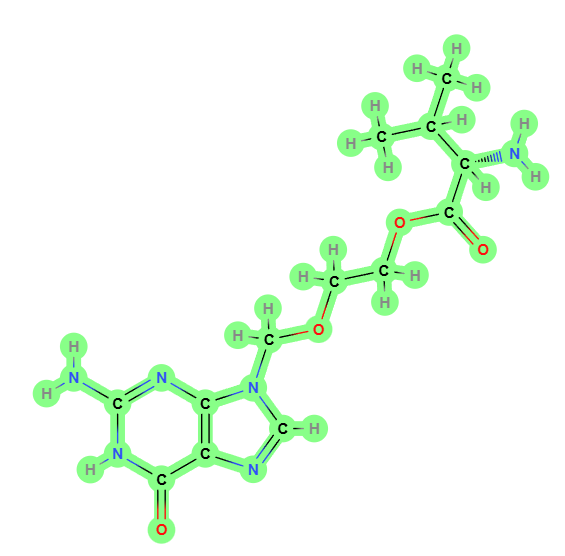
Inactive Components and Their Roles
Valaciclovir tablets not only consist of the ingredient but also include various inactive elements that help maintain the drug's effectiveness and make it easier for patients to take and absorb it successfully—such as fillers to keep the tablet intact and coating agents for better patient tolerance.
- Crospovidone and microcrystalline cellulose are included as additives to aid in the absorption of the ingredient by acting as fillers and disintegrants.
- Magnesium stearate fisa lubricant improves manufacturing and prevents ingredients from adhering to the machinery.
Valacyclovir vs Famciclovir
Valacyclovir and Famciclovir are prescribed for herpes infections; however, they work differently in the body. Valacyclovir is known for its absorption rate and effectiveness at turning into acyclovir. Famciclovir is also effective and is usually given to patients who may not respond well to Valacyclovir initially.
Valacyclovir vs Valtrex
Valtrex, in essence, goes by the brand name Valacyclovir; fundamentally, there's variance in the makeup of Valtrex and Valacyclovir; however, some individuals might opt for the brand name citing perceived effectiveness or superior production standards.
Valacyclovir vs Acyclovir
Valacyclovir acts as a prodrug for Acyclovir. Its improved bioavailability allows for better absorption and less frequent dosing compared to Acyclovir.This helps patients adhere easily to their treatment schedules.
Valacyclovir and Tylenol
Valacyclovir and Tylenol (acetaminophen, like paracetamol) can be taken together in medical situations to help relieve pain or reduce fever caused by infections without harming each other.
Valacyclovir and Paxlovid
There have been research studies looking into how Valacyclovir and Paxlovid interact with each other when used for treating COVID‐19 patients, together with proper medical guidance to handle possible drug interactions and improve treatment results.
Doxycycline and Valacyclovir
When dealing with cases involving both viral infections concurrently present, inpatient system organismal structurality or constitutionality composition makeup composition, healthcare providers may recommend a treatment plan that consists of the use of Doxycycline, which is an antibiotic used to fight bacterial infections, and Valacyclovir, an antiviral medication used to combat viral infections. Monitoring this combined treatment approach is essential to prevent any negative impacts on the body's natural microbiome balance.
Amoxicillin and Valacyclovir
For example, when Doxycyclines are combined with Valacyclovir for dual infection treatment, it's important to watch out for any negative reactions or reduced effectiveness when Amoxicillin is included in the mix.
Acyclovir, Famciclovir, and Valacyclovir
Acyclovir is commonly prescribed for treatment in therapy, while Famvirovir is known for its longer-lasting effects. Valacyclovir stands out for its easy absorption and convenience factors, which are important in medication selection based on individual patient requirements and health conditions.
How Valaciclovir Works
Mechanism of Action Against Viruses
It is quickly after taking Valaciclovir into the body system or applying it to the body's tissues through administration methods, like ingestion or topical application on the affected area(s). Transformed by enzymes found in the liver and intestines in Acyclovirvir – a medication known for its properties. Acyclovir operates with specificity by targeting cells that a virus has infected; within these cells, facilitated by viral thymidine kinase enzyme activity, it undergoes modification to its active triphosphate form. In its activated state, triphosphate forms within virus-infected cells, where its presence is necessary for combating infections. Effective Acyclovirvir competitively inhibits an essential enzyme called viral DNA polymerase that plays a pivotal role in viral DNA replication.
- This inhibitory action significantly impedes DNA replication, consequently slowing down or terminating completely the production of virus particles within the infected cells. This results in halting or curtailing the further progression of the viral infection itself.
- The drug-targeted approach helps reduce cell harm by targeting infected cells with active viral enzymes. Precision in treatment is crucial as it improves the effectiveness of therapy by disrupting the virus life cycle on a level.
Conversion of Valaciclovir to Aciclovir in the Body
The process of transforming Valaciclovir into acyclovir through intake plays a role in boosting its effectiveness in clinical settings. This change is made possible by the metabolism that occurs in the intestines and liver. Valaciclovir's design as a prodrug offers benefits such as solubility and absorption compared to acyclovir, resulting in higher levels of the drug in the bloodstream and longer-lasting antiviral effects that require less frequent dosing.
- The increased bioavailability of Valaciclovir means that more acyclovir can reach the infected area, effectively boosting the drug's ability to fight off viruses.
Effectiveness in Viral DNA Replication Inhibition
The effectiveness of Vacciclovir stems from its capability to halt the replication of DNA, which plays a role in the lifecycle of the virus itself; not only does Vacciclovir alleviate the intensity of acute herpes flare-ups, but it also lessens the likelihood of future outbreaks and lowers the chance of transmitting the infection to others.
- The symptoms of herpes often become milder, and patients notice a reduction in both the length and discomfort of their outbreaks.
- Regularly using Valaciclovir as a measure can significantly decrease the chances of experiencing recurring herpes infections.
Uses of Valaciclovir
Valaciclovir is a well-regarded drug commonly used to treat different types of herpes virus infections effectively. Its ability to alleviate symptoms and prevent the spread of infection makes it an essential element in treatment.
Primary Indications: Herpes Zoster (Shingles), Genital Herpes, and Herpes Simplex
Valaciclovir is mainly used to effectively treat Herpes Zoster (shingles), Genital Herpes, and Herpes Simplex viruses. It works by lowering the replication of DNA, which in turn lessens the duration and intensity of symptoms associated with these conditions.
- Valaciclovir helps lessen pain and lowers the chances of neuralgia in individuals with shingles, which is caused by the reactivation of the varicella-zoster virus.
- For people dealing with herpes, Valaciclovir helps control outbreaks, lowering the chances of transmitting the virus to partners and easing the discomfort caused by the sores.
- Managing both type 1 and type 2 herpes simplex viruses is essential with this medication as it helps deal with outbreaks of genital herpes while also lowering the chances of them coming back frequently.
Secondary Indications: Cold Sores (Herpes Labialis)
Furthermore, Valaciclovir successfully treats sores and herpes labialis triggered by the herpes simplex virus. It reduces the recovery time and duration of pain endured, notably decreasing the emergence of sores and the possibility of sores spreading to regions.
- Patients often experience an improvement in symptom severity during treatment, which helps them feel more comfortable and lessens the disruption caused by outbreaks in their daily lives.
- Valaciclovir can help reduce the occurrence of sores when used as a therapy option for patients seeking a long-term better quality of life.
Discussion on Therapeutic Effects and Outcomes
Valaciclovir is highly effective in treating conditions due to its antiviral properties, which bring critical clinical advantages. The medication's ability to disrupt replication not only helps in the initial stage of infections but also assists in long-term care by preventing future occurrences and decreasing the spread of the virus.
- Enhanced patient results are often seen in trials and patient feedback when using Valaciclovir due to infection control and symptom alleviation.
- Valaciclovir plays a role as a public health asset by aiding in the containment of viral transmission and the prevention of recurrent outbreaks associated with herpes virus-related illnesses.
Off-Label Uses of Valaciclovir
Valaciclovir is widely recognized for its ability to combat herpes viruses. It is also being studied for medical purposes. These potential uses harness the medication's effects to address health issues that may not yet be formally endorsed by regulatory bodies but show promise based on ongoing research and clinical findings.
Exploration of Non-Approved Uses in Medical Practice
Physicians in the field frequently utilize Valaciclovir for conditions that may have an element or where the drug's workings could provide healing advantages, showcasing continuous research and innovative approaches in healthcare.
- Exploratory therapy involves trials and observational studies to guarantee safety and effectiveness, even for nonstandard applications.
- Cutting-edge therapies frequently offer optimism for dealing with multifaceted health challenges.
Case Studies and Research Supporting Off-Label Benefits
Numerous real-life examples and scientific investigations have revealed the advantages of Valaciclovir in addressing ailments outside its uses, shedding light on the drug's wider possibilities and directing upcoming medical uses.
- Research studies have shown instances where patients saw enhancements in their symptoms and the progression of their conditions after receiving Valaciclovir for uses not originally approved by regulators.
- Ongoing scientific research is active. Confirming these discoveries to guarantee efficient treatments.
Valacyclovir for Nerve Pain
Recent findings indicate that Valaciclovir could ease nerve discomfort associated with infections such as shingles, which impact nerve tissues. By lowering levels and inflammation, Valaciclovir could potentially lessen the severity of neuropathic pain.
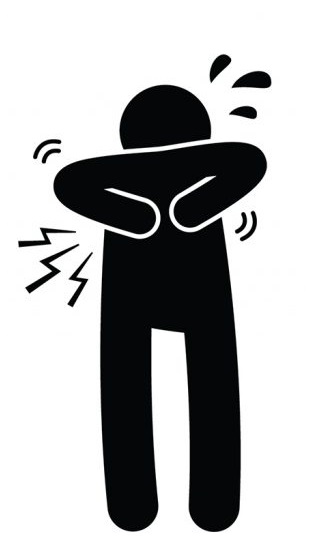
Valacyclovir for Canker Sores
While healthcare professionals commonly use valaciclovir to treat herpes-related issues, it is sometimes also recommended to speed up the recovery process of canker sores. The idea behind this approach is that reducing the chances of triggers may help decrease both the occurrence and intensity of outbreaks.
Valacyclovir for Bell's Palsy
Valaciclovir is occasionally combined with corticosteroids to address Bell's Palsy, a form of nerve paralysis believed to be caused by infections. Using an antiviral medication may help alleviate inflammation and assist in the healing process.
Valacyclovir for Acne
When dealing with acne that appears to have an influence and proves challenging to treat using conventional methods, valaciclovir might be included in the treatment plan as an option worth considering, even though it's not a typical remedy for this condition. This approach recognizes the nature of acne's causes, which include inflammation and microbial elements.
Valacyclovir for Eye Infection
Valaciclovir is effective in treating eye infections triggered by the herpes simplex virus. It has been shown to lessen the intensity of symptoms and speed up healing in cases such as keratitis, which helps maintain eyesight and avoid issues.
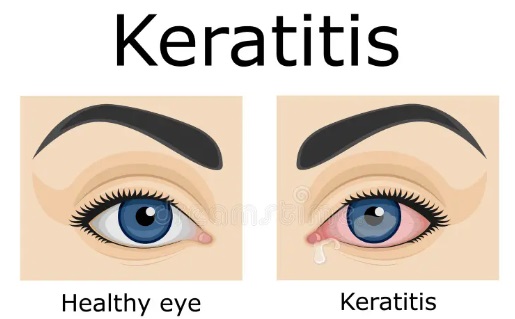
Dosage and Administration
Properly administering Valaciclovir is crucial for treating viral illnesses. This segment provides insights into the recommended dosages for conditions. It emphasizes the importance of tailored administration for specific patient demographics to guarantee safety and effectiveness.
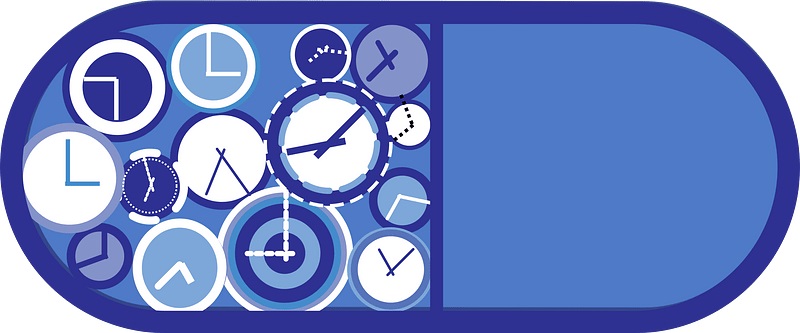
Standard Dosing Guidelines for Different Conditions
Valaciclovir Dosage for Herpes
For people who experience repeated herpes outbreaks, the usual dose is 500 mg, taken twice daily for three days. It is recommended to start the treatment as symptoms appear to achieve optimal outcomes.
Valaciclovir Dosage for Cold Sores
A typical approach to managing sores involves consuming 2 grams of Valaciclovir two times in one day when symptoms first appear, with the doses taken 12 hours apart. This amount assists in reducing the length and intensity of the flare-up.
Valaciclovir Dosage for Shingles
The treatment protocol for shingles infection suggests taking 1 gram of Valaciclovir thrice for a week to combat the illness effectively; it's important to start the treatment upon diagnosis for optimal results.
Valaciclovir Pregnancy Dosage
Pregnant women should be cautious when it comes to taking medication while expecting a baby. During pregnancy, valaciclovir is often deemed safe for addressing herpes flare-ups. However, it is advisable to use it if necessary and carefully evaluate the advantages and drawbacks after consulting with a healthcare professional.
Valaciclovir Pediatric Dose
When it comes to kids' medications for conditions, their weight plays a role in determining the dosage to give them. This is especially true when dealing with chickenpox in children between 2 and 18 years old, who typically receive a dose of 20 mg/kg daily for a span of 5 days; ensure not to go over 1 gram thrice daily.
Adjustments for Specific Populations (e.g., Renal Impairment)
Patients with kidney problems should have their medication doses adjusted based on their kidney function to avoid a build-up of drugs and potential harm. Therefore, it is suggested that doses be used or that the time between doses be increased depending on the seriousness of the condition.
Valaciclovir Daily Dosage
For recurring herpes flare-ups, the usual daily intake of valaciclovir medications ranges from 500mg to 1 gram. Lower amounts might be used for treatment. The dose can be altered as needed depending on how often the outbreaks occur and how severe they are.
Valaciclovir Max Dose
The appropriate amount of Valaciclovir to take depends on the condition being treated. For adults, it should not go beyond 2 grams per dose. It is crucial to monitor patients with other health issues for safety reasons.
Instructions for Optimal Consumption (with/without food, etc.)
You can take Valaciclovir with or without a meal, as it may lessen stomach discomfort, which often occurs as a side effect of the medication. It's important to stay well hydrated during treatment to ease the strain on the kidneys and improve drug elimination from your system.
Administration Considerations in Special Populations
When giving Valaciclovir to patients, it's important to take into account their age and health condition to make sure it works well and doesn't cause any issues. It's crucial to adjust and monitor treatment for groups like people, pregnant women, breastfeeding mothers, and kids to ensure the best care.
Elderly: Adjustments and Monitoring
The older generation might have a decline in kidney function, which impacts how medicines are cleared from their bodies. Valaciclovir doses need to be modified for elderly individuals to avoid the buildup of the medication that could cause effects. It's advisable to check kidney function with creatinine clearance tests to guarantee the drug's usage.
- A dosage adjustment may be necessary based on the level of kidney function impairment; a significant dosage reduction might be required in some cases.
- Regularly checking one's health is vital to catch any reactions or conflicts with other medications that older individuals often take.
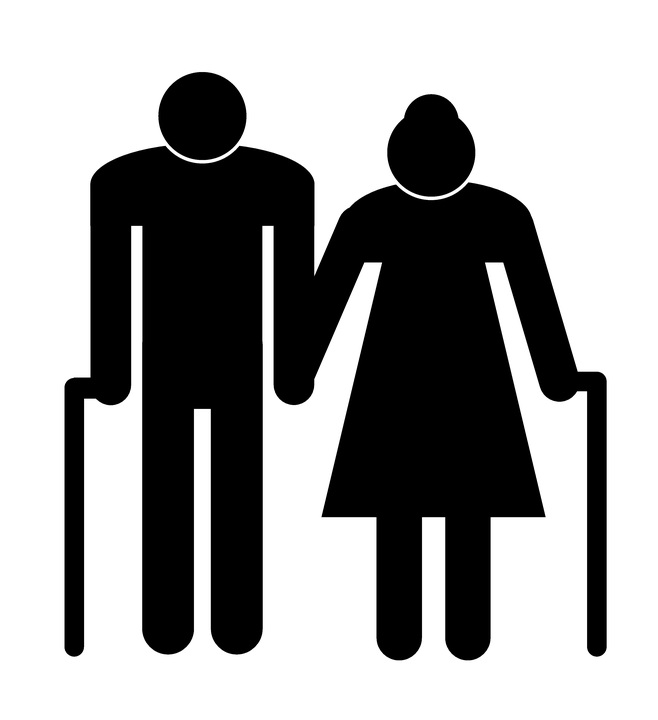
Pregnant Women and Nursing Mothers: Safety, Risks, and Recommendations
Valaciclovir falls into Category B as per the FDA guidelines for pregnancy use. Meaning that while animal studies haven't shown any risks to the fetus yet and there are no documented studies in women; its generally deemed safe for use by expectant mothers since the advantages could surpass any potential risks if its prescribed for a serious ailment, like herpes.
- Throughout pregnancy, professionals must closely monitor Valaciclovir to assess whether the benefits to the mother outweigh any risks to the fetus.
- While breastfeeding their babies, mothers should talk to their healthcare provider about the risks and benefits of using Valaciclovir since it can be found in breast milk. However, no effects have been reported on nursing infants yet.
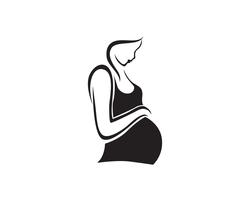
Children: Age-specific Dosage and Precautions
Valaciclovir is generally not advised for children except in cases of chickenpox in kids aged 2 to 18 years old. The recommended doses for children depend upon their body weight. Require monitoring to make necessary dose adjustments and watch out for any potential side effects.
- For kids affected by chickenpox, the suggested dosage is 20 mg/kg given thrice a day for 5 days, with a limit of 1 gram three times.
- It's important to remember that children can be more affected by medications than adults, so if they experience any side effects from taking medicine, it's best to get in touch with a healthcare provider.

Common Side Effects of Valaciclovir
Valaciclovir is known for effectively treating infections; however, it has various side effects ranging from mild to moderate in intensity. The key to managing these side effects lies in being aware of them and understanding how they can impact patients' comfort and adherence to the medication regimen.

List of Frequent Mild to Moderate Side Effects
The usual side effects of Valaciclovir are nausea, headache, vomiting, dizziness, and abdominal pain. These effects are typically mild and usually go away without requiring treatment.
- Feeling queasy and throwing up. These stomach issues are reactions that can make the patient feel uncomfortable and lose their appetite.
- Frequent headaches and dizziness may impact your routine; however, these symptoms usually lessen as your body becomes accustomed to the medication.
- Experiencing pain may lead to diarrhea, which can affect the patient's overall well-being and ability to carry out daily activities.
Management Strategies for Common Side Effects
Efficiently handling side effects can enhance results and commitment to the treatment plan by incorporating practices like staying hydrated, making changes, and occasionally using medications to alleviate symptoms.
- Encouraging hydration can assist in reducing nausea and avoiding dehydration resulting from vomiting or diarrhea.
- Utilizing prescription treatments, anti-nausea medications can be employed to alleviate feelings of nausea, and pain relievers are effective in easing headaches.
- Changing your diet can help manage issues – try eating meals regularly to avoid stomach discomfort and steer clear of spicy or greasy foods to ease gastrointestinal problems.
Valacyclovir Hair Loss
Hair loss can occur as a potential outcome of taking Valaciclovir, which may be triggered by the strain of illness or the body's response to the medication. Fortunately, this side effect is often temporary and tends to improve once the treatment is stopped or the dosage is modified.

Valacyclovir Headaches
Commonly, Valaciclovir may lead to headaches as a side effect, which are generally mild and can often be relieved with standard, over-the-counter pain medications and sufficient hydration.

Valacyclovir Side Effects Long-Term
Valaciclovir is usually safe when used over a long period but may cause kidney problems in individuals with preexisting kidney conditions. Those undergoing treatment with the medication are advised to have their kidney function regularly checked.
Valacyclovir Side Effects Itching
It's rare, but itching can happen as a response to Valaciclovir. If itching comes with signs of an allergy, like a rash or trouble breathing, get help immediately. In these situations, you can use antihistamines to ease the symptoms.
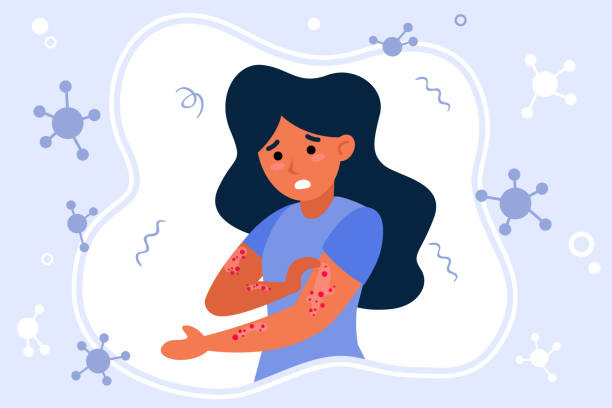
Serious Side Effects and Adverse Reactions
Valaciclovir is known for its effectiveness in treating infections; however, it may cause side effects and adverse reactions that necessitate prompt medical intervention. It is important for patients to be able to recognize these effects and know when and how to seek medical care to ensure their safety.
Identification of Severe Adverse Effects
Serious side effects from Valaciclovir are uncommon. In some cases, they can pose a risk to life, such as;
- Thrombotic Thrombocytopenic Purpura/Hemolytic Uremic Syndrome (TTP/HUS): This uncommon ailment typically affects individuals with weakened systems. It is marked by a sudden decrease in platelet count that may result in serious issues like kidney failure and neurological manifestations.
- Valaciclovir may lead to kidney issues in people with kidney problems or on dosages, resulting in symptoms like reduced urine output, swelling in the legs, and fatigue.
- Anaphylaxis is a reaction that causes trouble breathing and symptoms like hives and swelling of the face or throat while speeding up the heartbeat; immediate medical help is necessary in such cases.
- Rarely but possibly, are side effects, like restlessness and delusions, that may arise in older individuals or those with kidney issues.
Guidelines for Emergency Response and When to Seek Help
Recognizing the moment to ask for assistance and understanding how to react to responses can help avoid issues and enhance results. Here are some tips for dealing with emergencies;
- If you experience signs of TTP/HUS such as issues or severe allergic reactions like anaphylaxis or neurological problems that are serious in nature, please seek urgent medical assistance or contact emergency services promptly.
- Stop taking the medication if you are experiencing side effects, and consult a healthcare professional for guidance.
- Hospitalization might be required to deliver treatment such, as dialysis for acute renal failure or intensive care, for anaphylactic reactions.
- Patients at risk of reactions should undergo monitoring to detect any potential issues early on, including blood tests to assess kidney function and complete blood counts for early detection of severe adverse effects.
Drug Interactions with Valaciclovir
Common and Significant Medication Interactions
Valaciclovir's effectiveness and safety may vary depending on how it interacts with medications. Some interactions could worsen side effects, and some might impact the drug's ability to fight viruses effectively.
- Using medications with other antivirals, such as cidofovir or foscarnet, can heighten the chances of kidney-related toxicity and, therefore, requires careful monitoring of kidney function.
- Taking immunosuppressants along with medications like tacrolimus or cyclosporine can increase the chances of kidney harm because of the combined effects on the kidneys.
- Certain types of antibiotics, like aminoglycosides, can worsen kidney issues when taken along with Valaciclovir medication.
Interaction with Over-the-Counter Drugs and Supplements
Valaciclovir's absorption and effects can be influenced by over-the-counter (OTC) medications and dietary supplements.
- Probiotics and multivitamins may affect the absorption of Valaciclovir when taken together due to components, such as magnesium or calcium, in multivitamins.
- Herbal supplements, like echinacea, are believed to enhance immunity and could potentially affect the response while undergoing treatment; however, medical research is still investigating the precise clinical effects of this interaction.
- When you take Valaciclovir with over-the-counter pain relievers such as ibuprofen or aspirin, it might put a strain on your kidneys. Especially if you already have kidney issues.
Managing Potential Interaction Risks
Ensuring safety and treatment effectiveness through the management of drug interactions requires implementing strategies to reduce risks effectively.
- It's important to have a medication checkup by going over all your prescriptions with a healthcare professional—don't forget about over-the-counter medications and supplements.
- When taking supplements like Valaciclovir without any issues, keep absorption conflicts in mind, and don't forget to consider the timing of ingestion for results.
- Regularly conducting blood tests to monitor kidney function and medication levels is crucial for detecting and managing effects at an early stage.
- Patient instruction is crucial as it enables patients to understand drug interactions and recognize symptoms of side effects, empowering them to play a role in their treatment journey.
Precautions and Warnings
Valaciclovir is commonly used to treat infections. Guidelines and cautions are in place to promote its safe usage for individuals with specific health conditions or those taking particular substances while on the medication.

Contraindications for Valaciclovir Use
Valaciclovir should not be given to patients who are allergic to the medication or any of its ingredients as it could lead to potentially life-threatening hypersensitivity reactions, like anaphylaxis or angioedema.
- Patients, with kidney problems should be cautious when using Valaciclovir as a dosage adjustment is frequently required to prevent the build up of the medication and reduce the risk of toxicity levels.
- Individuals experiencing dehydration should exercise caution when using Valaciclovir as it may place a strain on the kidneys.
Warnings for Patients with Specific Health Conditions
Patients with conditions must exercise extra caution when using Valaciclovir as it may heighten the likelihood of experiencing adverse side effects.
- Patients with weakened systems due to conditions like HIV/AIDS or those taking immunosuppressants may need to have their dosage adjusted and be closely monitored while undergoing Valaciclovir treatment.
- Older individuals with declining kidney function are more prone to experiencing issues and potential kidney damage, thus requiring observation and possible adjustments in medication dosage.
Valacyclovir and Alcohol
It is advised to avoid drinking alcohol while taking Valaciclovir as it can intensify the effects of the medication and potentially lead to increased dizziness or drowsiness. It may also strain the liver since it plays a role in metabolizing the drug.
Valacyclovir and Caffeine
Valaciclovir and caffeine do not directly interact. Patients must be careful, however, as caffeine can worsen side effects, such as feeling anxious or jittery, stomach discomfort, or a faster heartbeat.
Valacyclovir Interactions with Vitamins
Certain vitamins with high antioxidant content could potentially interact with Valaciclovir. For example, elevated levels of vitamin C or E might influence function and impact the drug's effectiveness.
Valacyclovir Interactions with Magnesium
Taking magnesium supplements could potentially reduce the effectiveness of Valaciclovir by interfering with its absorption process. To avoid this interaction and ensure the medication's effectiveness, it is recommended to take the medication at least two hours before or four to six hours after consuming magnesium supplements.
Valacyclovir Alternatives
Some patients who cannot take Valaciclovir may consider options like Acyclovir and Famvir as medications with varying dosing schedules and potential side effects that could be more suitable for their health condition and treatment objectives.
- Acyclovir is commonly prescribed for the same reasons as Valaciclovir. It needs to be taken more often.
- Another option to consider is Famvir (famvir), often chosen for its ease of dosing and how well patients tolerate it.
Handling and Storage of Valaciclovir
Valaciclovir must be maintained to remain effective and safe to use. Knowing how to store and handle it correctly can prevent the medicine from losing its effectiveness and reduce the chances of exposure.
Recommended Storage Conditions to Maintain Efficacy
To maintain its strength and efficacy, store valaciclovir in a dry place away from sunlight and moisture. The recommended storage temperature usually falls between 15°C and 30°C (59°F and 86°F). It is crucial to keep the medication in its container tightly sealed and out of the reach of children and pets to avoid contamination or improper use.
- Remember to keep Valaciclovir in a place that's not too hot or damp, such as bathrooms or kitchens, to maintain its quality and effectiveness.
- Remember to store the medication in an area to prevent the components from degrading due to too much light exposure.

Safe Handling Practices and Disposal
It's crucial to handle Valaciclovir with care to prevent contact with individuals it wasn't prescribed for, like kids or pets. To safeguard the environment and minimize drug misuse risks, it's vital to follow disposal methods.
- Please refrain from touching crushed or broken tablets with your skin or eyes. Wash them thoroughly if contact happens.
- Remember not to throw Valaciclovir in the sink, toilet, or household trash; instead, consider using take-back programs if they're accessible or seek advice from a pharmacist on disposal methods.
Valacyclovir Shelf Life
Valaciclovir usually remains effective three to five years after being manufactured when stored properly. Be sure to check the expiration date on the package before using it and avoid using the medicine after that date, as it could lose its effectiveness in fighting infections. Stay mindful of the expiration date.
- Please dispose of the medication when it has expired.
- Also, remember to check your medicine cabinet to ensure all your medications are not expired and stored correctly.
Overdosage of Valaciclovir
Taking much Valaciclovir is uncommon. It can cause severe symptoms and complications if it happens. Promptly identifying the signs. Knowing what steps to take and treatments to seek can help reduce the risks to your well-being from an overdose.
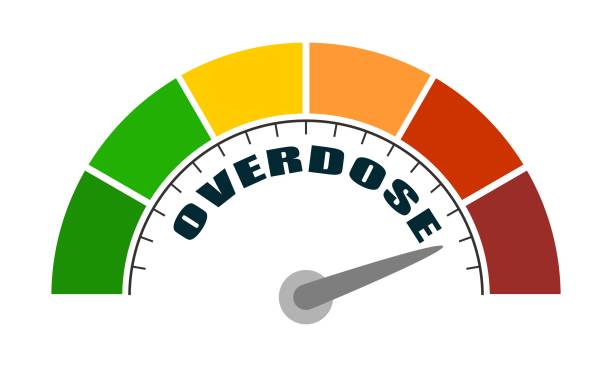
Signs and Symptoms of Overdose
Taking Valaciclovir can lead to a range of symptoms that can differ in seriousness based on how much was taken and personal factors, like age and kidney function of the individual.
- Neurological signs may manifest as disorientation and visual or auditory disturbances; in situations they could lead to seizures.
- Symptoms related to the kidneys may include a decrease in urine production as an indication of acute kidney damage caused by the buildup of medication in the kidneys.
- Digestive issues, like stomach discomfort, can lead to symptoms such as feeling sick or throwing up and having bowels, which may result in dehydration.
Immediate Actions and Treatments for Overdosage
In case of taking Valaciclovir by accident or intentionally overdosing, it is essential to seek medical help right away. The steps below guide how to handle an overdose situation;
- If you suspect an overdose, it's crucial to seek help by either contacting emergency services or heading to the hospital right away.
- Supportive treatment is mainly aimed at providing care. It may involve giving activated charcoal after ingestion to limit drug absorption.
- Staying hydrated is crucial to maintaining body levels when dealing with issues like vomiting or diarrhea and to help the kidneys function well.
- Continuous monitoring of kidney function and the potential need for dialysis is essential for managing and addressing any issues that may arise.
Careful Administration and Monitoring
Careful administration and close monitoring are components of the process to ensure that valaciclovir treatment is successful and safe, meets patients' individual needs, and effectively reduces side effects.
Monitoring for Effectiveness and Side Effects
It's crucial to check on how Valaciclovir works and watch out for any adverse reactions while using it as part of your treatment plan. This continuous monitoring includes checkups and maybe some lab tests, too, if needed, based on your overall health condition and the type of viral infection you have.
- Regular check-ins with patients are important to monitor progress in managing symptoms like the healing of herpes sores or the relief of pain from shingles, as they can directly show how well the treatment is working.
- Regular blood tests are crucial for monitoring kidney health in individuals who might be prone to kidney issues and spotting any blood-related abnormalities.
- Patients need to be observed for any indications of stomach discomfort or headaches, as well as more severe issues such as alterations in mental condition or kidney function.
Adjustments in Therapy Based on Patient Response
The effectiveness of Valaciclovir treatment can differ significantly from person to person. To achieve the results, changes in dosage or treatment plan may be required. These modifications depend upon a mix of symptoms reported by the patient, clinical assessments, and test findings.
- If the initial dose is not well received, adjusting the dosage may be necessary to improve infection management or reduce side effects.
- Consider options. If Valaciclovir is not working well or causing issues, you may want to consider trying antiviral medications or additional treatments.
- Tailoring treatment plans to better suit a patient's health needs, like considering any kidney issues or other medications that may interact with Valaciclovir, can lead to more efficient care management.
Valcivir, Valaciclovir Tablet FAQ
- Can I take Valacyclovir with ibuprofen
- Can you take Valacyclovir while breastfeeding
- Can you take Valacyclovir while pregnant for cold sores
- Can you drink alcohol while taking Valacyclovir
- Can Valacyclovir cause yeast infection
- Can you take Valacyclovir daily
- Can Valacyclovir cause weight gain
- Can you overdose on Valacyclovir
- Can Valacyclovir treat chlamydia
- Can you use acyclovir cream and Valacyclovir tablets together
- Do you have to take Valacyclovir everyday for the rest of life
- Does Valacyclovir work for canker sores
- Does Valacyclovir cause acne
- Does Valacyclovir expire
- Does Valacyclovir cause hair loss
- Does Valacyclovir cause constipation
- Does alcohol affect Valacyclovir
- Does Valacyclovir cause weight gain
- How fast does Valacyclovir work for cold sores
- How long does Valacyclovir take to work for cold sores
- How long does it take for Valacyclovir to work on herpes
- How fast does Valacyclovir work for herpes
- How long to take Valacyclovir for shingles
- How fast does Valacyclovir work
- How long does Valacyclovir stay in your system
- How does Valacyclovir work
- How long does it take for Valacyclovir to work
- How much Valacyclovir can i take in a day
- How long after taking Valacyclovir can you drink alcohol
- How often can you take Valacyclovir
- How many Valacyclovir can i take a day
- How effective is Valacyclovir
- How long does Valacyclovir last
- Is acyclovir the same as Valacyclovir
- Is Valacyclovir the same as Valtrex
- Is Valacyclovir safe in pregnancy
- Is long-term use of Valacyclovir safe
- Is Valacyclovir bad for your liver
- What are the long-term side effects of Valacyclovir
- What pain medication can i take with Valacyclovir
- What should i avoid while taking Valacyclovir?
- What's the difference between acyclovir and Valacyclovir
- What happens if you double dose Valacyclovir
- Which is better acyclovir or Valacyclovir
Can I take Valacyclovir with ibuprofen
Certainly! It is safe to use valacyclovir and ibuprofen as there are no reported interactions between the two medications. Nonetheless, seeking advice from a healthcare professional for tailored guidance is advisable.
Can you take Valacyclovir while breastfeeding
Valacyclovir is usually considered safe to use during breastfeeding as small amounts enter the breast milk and are unlikely to pose any risk to a nursing baby; however, it is advisable to seek advice from a healthcare provider before initiating any new medication regimen while breastfeeding.
Can you take Valacyclovir while pregnant for cold sores
Sure thing! After consulting with a healthcare provider, valacyclovir can be taken during pregnancy for cold sores. It is generally considered safe, but a healthcare professional can provide guidance based on the individual.
Can you drink alcohol while taking Valacyclovir
Sure thing! It's okay to have a drink while on valacyclovir, as you don't go overboard with it. Excessive drinking could heighten the chances of experiencing side effects from valacyclovir.
Can Valacyclovir cause yeast infection
Sure thing! Valacyclovir might lead to a yeast infection as a side effect; however, it's not very common in practice. If you notice any signs of a yeast infection when using valacyclovir medication, it's advisable to seek advice from a healthcare professional.
Can you take Valacyclovir daily
Certainly! Valacyclovir is commonly used on a regular basis to manage recurring herpes outbreaks as advised by a healthcare professional according to requirements and health status.
Can Valacyclovir cause weight gain
Weight gain is not a result of using valacyclovir medication. If you notice any unusual changes in your weight during treatment, seek advice from a healthcare professional for assessment.
Can you overdose on Valacyclovir
Yes, indeed, it is possible to have an overdose of valacyclovir by taking more than the recommended dosage, which can result in side effects; should you believe an overdose has occurred, seek medical assistance without delay.
Can Valacyclovir treat chlamydia
Nope! Valacyclovir isn't practical for treating chlamydia since it's an infection that necessitates antibiotics for treatment, whereas valacyclovir is specifically designed to combat diseases like herpes.
Can you use acyclovir cream and Valacyclovir tablets together
Certainly! It is safe to use acyclovir cream and valacyclovir tablets concurrently as they work against herpes viruses differently—acyclovir cream acts locally. In contrast, valacyclovir works systemically to combat the infection effectively. It's essential to heed the guidance of a healthcare professional when combining medications.
Do you have to take Valacyclovir everyday for the rest of life
You're not required to use valacyclovir; it's usually given for certain periods to control herpes virus flare-ups or as preventive care for a limited time based on individual health requirements and guidance from a healthcare provider.
Does Valacyclovir work for canker sores
Valacyclovir is usually not prescribed for canker sores since it is a drug meant for treating infections such as herpes simplex and is not intended for canker sores that have different causes unrelated to viruses.
Does Valacyclovir cause acne
Valacyclovir usually doesn't lead to acne breakouts as it's not commonly associated with this medication's side effects.
Does Valacyclovir expire
Certainly! Valacyclovir does indeed have an expiration date like medications. Once it expires, its effectiveness may diminish over time.
Does Valacyclovir cause hair loss
Hair loss is not a mentioned side effect of valacyclovir.
Does Valacyclovir cause constipation
Constipation is not an issue that people mention when taking valacyclovir medication.
Does alcohol affect Valacyclovir
Certainly! Drinking alcohol might impact the effectiveness of valacyclovir. This could lead to an increase in side effects, like feelings of dizziness and drowsiness.
Does Valacyclovir cause weight gain
Weight gain is not often listed as a side effect of valacyclovir treatment.
How fast does Valacyclovir work for cold sores
It's common for valacyclovir to begin showing results in around 2 to 3 days, which helps alleviate symptoms.
How long does Valacyclovir take to work for cold sores
Cold sores usually show improvement within 2 to 3 days after starting valacyclovir treatment.
How long does it take for Valacyclovir to work on herpes
Valacyclovir typically begins to take effect in about 1 to 2 days for symptoms of herpes.
How fast does Valacyclovir work for herpes
Symptoms of herpes often start to improve within 24, to 48 hours after starting valacyclovir treatment.
How long to take Valacyclovir for shingles
People usually take Valacyclovir for a week to ten days when dealing with shingles.
How fast does Valacyclovir work
Typically, Valacyclovir takes effect within 24 to 48 hours of initiating the treatment.
How long does Valacyclovir stay in your system
Valacyclovir generally remains in your body for 2 to 3 hours before it is processed and eliminated.
How does Valacyclovir work
Valacyclovir blocks DNA reproduction to limit the virus's spread and lessen the intensity and duration of symptoms.
How long does it take for Valacyclovir to work
Valacyclovir typically takes effect within one to two days of initiating the treatment.
How much Valacyclovir can i take in a day
The proper amount of Valacyclovir daily varies based on the ailment being addressed. Still, as your healthcare professional advises, it typically falls within the range of 1000 mg to 3000 mg, split into two or three doses daily.
How long after taking Valacyclovir can you drink alcohol
It's usually fine to have a drink or two when you're using Valacyclovir as there aren't any rules, about drinking alcohol while taking this medication according to the guidelines provided for it by doctors and pharmacists. However, it's an idea to talk to your healthcare provider and get advice on your health needs.
How often can you take Valacyclovir
It's common to take Valacyclovir two to three times a day, as advised by your healthcare provider, depending on the condition you're addressing.
How many Valacyclovir can i take a day
The amount of Valacyclovir tablets one should take varies based on the strength of the tablets and the particular condition being addressed; typically, it ranges from 1 to 3 tablets daily as recommended by your healthcare provider.
How effective is Valacyclovir
When used as directed, valacyclovir proves to be very efficient in managing infections such as herpes simplex and herpes zoster. It notably lessens the length and intensity of symptoms.
How long does Valacyclovir last
Valacyclovir remains active in the body for around 2 to 3 hours before its impact, and alleviating symptoms can endure for a period based on the dosage and length of treatment.
Is acyclovir the same as Valacyclovir
Acyclovir and valacyclovir are medications with functions; acyclovir acts as an antiviral directly, while valacyclovir serves as a prodrug that transforms into acyclovir in the body for improved absorption and prolonged effectiveness.
Is Valacyclovir the same as Valtrex
Indeed! Valacyclovir is the term for Valtrex. That's the brand name for it.
Is Valacyclovir safe in pregnancy
Valacyclovir is typically deemed safe to use; however, it is advisable to use it under the guidance of a healthcare professional.
Is long-term use of Valacyclovir safe
Certainly! Using valacyclovir for a period is usually considered safe; however, a healthcare provider must oversee its usage to address any side effects or issues.
Is Valacyclovir bad for your liver
Valacyclovir is typically safe for the liver, but it can cause liver issues in rare cases, especially in those with preexisting liver conditions or those taking other medications that affect the liver.
What are the long-term side effects of Valacyclovir
Valacyclovir may cause lasting impacts, such as headaches and stomach discomfort, along with symptoms like dizziness and fatigue. In some cases, it could result in serious complications, such as kidney issues, blood disorders, or effects on the central nervous system, like confusion, restlessness, or vivid experiences.
What pain medication can i take with Valacyclovir
You can use pain relievers such as Tylenol or Advil alongside valacyclovir without any issues; make sure to check in with your doctor before mixing medications.
What should i avoid while taking Valacyclovir?
While taking valacyclovir, you should avoid dehydration by drinking plenty of fluids. Also, avoid taking other medications, especially those that could affect the kidneys (like NSAIDs), without consulting your healthcare provider. It is also advisable to avoid contact with others if you are taking it for viral infections like herpes to prevent the spreading of the virus.
What's the difference between acyclovir and Valacyclovir
Valacyclovir functions as a prodrug of acyclovir by transforming into acyclovir within the body system. It boasts improved bioavailability and necessitates less frequent administration than acyclovir. Both medications are employed for treating infections.
What happens if you double dose Valacyclovir
Doubling a dose of valacyclovir may increase the risk of side effects such as nausea, headache, dizziness, kidney strain, or more severe reactions. Contact your healthcare provider immediately if this occurs.
Which is better acyclovir or Valacyclovir
Valacyclovir is often regarded as more effective than acyclovir in treating herpes virus infections due to its enhanced absorption rate and lasting effects; moreover, it requires fewer daily doses, which can lead to better adherence to the treatment regimen.








